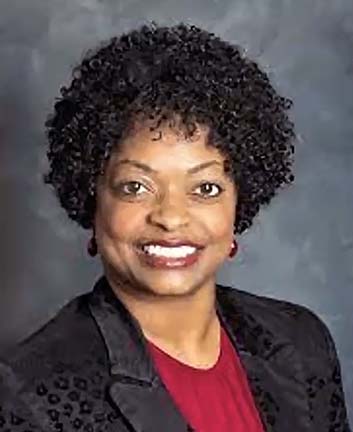By Stefanie Jackson – Ava Gabrielle-Wise, who is known for her leadership and work with Exmore’s New Road community, opened the 2022 conference of the Southeast Crescent Regional Commission Coalition, BRIDGES (Building Regional Resilience and Regional Readiness for Investment and Growth in the South) online Feb. 17.
The Eastern Shore belongs to the region of the U.S. known as the Southeast Crescent or Black Belt, so called because it hugs the southern portion of the East Coast, from Virginia to Mississippi, and is home to the majority of the nation’s African American community.
Some aspects of the region that make it unique also may affect the persistence of poverty: less than 60 years of voting rights for African Americans, a lack of generational wealth, and socioeconomic and political division (social stratification), according to the Southern Economic Advancement Project and Roosevelt Institute (SEAP-RI).
The Southeast Crescent Regional Commission was created by the 2008 U.S. Farm Bill to direct federal funding to the region to help it lift itself out of the poverty that has impacted the region for decades.
The economic challenges of the South were recognized at least 70 years prior, when President Franklin D. Roosevelt called them “the nation’s number one economic problem,” according to SEAP-RI.
Even after the Southeast Crescent Regional Commission was created, its work was stalled for years because no U.S. President had appointed a federal co-chair to the commission.
But the coalition of the same name, formed in 2019, had successfully contacted the office of President-elect Joe Biden, which led to the U.S. Senate finally confirming the commission’s first federal co-chair, Jennifer Clyburn Reed, in December 2021.
Reed, a retired educator, taught for 28 years and directed the University of South Carolina’s center for the education and equity of African American students.
The Southeast Crescent Regional Commission’s leadership also will include a state co-chair and the governors of seven southern states: Alabama, Florida, Georgia, Mississippi, North Carolina, South Carolina, and Virginia.
The commission “will focus on targeted strategic investments that have the potential to stimulate growth in economically resistant areas of the southeast region of the United States,” Gabrielle-Wise said.
Those investments will be in the form of federal grants given to states, local governments, Indian tribes, public organizations, and nonprofits for needs including:
- Basic public infrastructure
- Transportation infrastructure
- Telecommunications infrastructure
- Job skills training, employment education, technology, and business
- Health care and public services for severely distressed areas
- Promoting conservation, tourism, and open space
- Promoting renewable and alternative energy sources.
As economic development strategies helped the South transition from an agriculture-based economy in the 20th century, so do new strategies aim to transition the region to a knowledge-based economy in the 21st century, according to SEAP-RI.
The Southeast Crescent Regional Commission originally was authorized for $30 million, which was reduced to an annual federal budget appropriation of $250,000, but its coalition “knew we were finally being heard” in 2020, when the budget appropriation was increased to $1 million, Gabrielle-Wise said.
The appropriation was increased to $5 million in the 2022 federal budget, giving Reed “not a lot of resources for grant-making” but enough “to stand up the institution and get ready for business and operations,” Gabrielle-Wise said.
She said the coalition will continue to support the Southeast Crescent Regional Commission “in helping the Congress to understand how important it is … that the commission has the appropriation that it needs – the meaningful appropriation that it needs – in order for it to be truly effective in the region.”
To learn more, watch the Southeast Crescent Regional Commission Coalition’s YouTube channel at https://www.youtube.com/channel/UCmrRxnhLFibWwW-hOtvg20w or contact Ava Gabrielle-Wise, P.O. Box 1413, Exmore, VA 23350.



